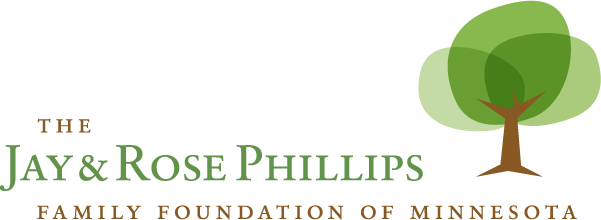This past fall, the VISTAs of C3 Twin Cities had the privilege of volunteering and attending the 2016 Overcoming Racism Conference: Disrupting Racism as Usual. Together we learned about the impacts of racism and explored how we can overcome the hatred undergirding the many systems we operate within. Naturally, we all had different takeaways from the conference, but there were a few particular areas of interest that stood out. We resonated especially with exploring racism in the school system, including a deeper look at the Project Kofi session, which explores mental health and trauma for students of color. Finally, we offer some reflections on how various sessions, speakers, or side conversations with other attendees hit home for our members.
IN THE SCHOOL SYSTEM
A workshop called “Disrupting Racism in K-12 Social Studies” brought up something I have been wondering for years: why are students being taught lies? I remember learning in elementary school that Columbus discovered America. I got the impression that America had been uninhabited prior to 1492. In truth, it had been inhabited by millions of indigenous people who were enslaved and exterminated by Columbus and his successors. Yet many schools continue to teach lies about Columbus. During this workshop, I learned about a new history curriculum, used by Saint Paul Public Schools, that includes American Indian perspectives. Seeing what St. Paul has done left me feeling optimistic. -Ben Suker
One breakout session that I enjoyed was about the school to prison pipeline. In this session, the presenters talked about the stereotypes that prevent students from succeeding in their education. The presenters also talked about strategies that parents or guardians can use to bring more awareness about issues that students are facing to the education administration. -Mychie Yang
Braulio Carrasco, the racial equity organizer at the Minnesota teacher’s union, presented tools he has created to help teachers combat racism. Those worksheets and conversation prompts were neat, but I was more interested in the hurdles he has faced to implementing them: pushback from teachers, tokenism in his organization, to name a few. His stories gave voice to a question I’ve been carrying around since reading Sara Ahmed’s “On Being Included”: How can we transform institutions from the inside, if our inclusion is premised on our alignment with existing power structures? -Hart Hornor
PROJECT KOFI
I was blown away by the workshop presented by Project Kofi therapists. Too often I have seen white educators and youth workers attempt to relate to children of color or their families without considering cultural context and historical trauma. I had not heard the term “historical trauma” used in praxis rather than academia. I hope to see this type of program expanded to schools all over the Twin Cities and surrounding counties so that children of color can be treated in a respectful, culturally appropriate manner that addresses the centuries of institutional racism faced by communities of color. This workshop was the standout of the conference for me. -Hannah Bech
I attended a workshop about historical trauma among black students and Kofi, a program in Saint Paul Public Schools that provides mental health services to black elementary school students. This related well to my project at KIPP Northstar Academy. The conference, however, at times leaned a little too heavily to the side of white fragility during general Q & A periods. I also didn’t like how there was very little age diversity and not enough nor great access to disability seating. I would be interested in attending the conference next year, but only if some of these issues are resolved. -Jessie Miller
WAYS THIS HIT HOME
I am an adoptee, so I was drawn to a workshop called “The Revolution Starts at Home: How Korean Adoptees Are Disrupting Racism for Individual, Family, Community, and Society Transformation.” This workshop was led by two Korean adoptees, who talked about the need to disrupt racist adoption narratives. Most of the audience were adoptees. We specifically discussed transnational and transracial adoptions. As a transnational adoptee, I’ve only had to deal with one of these aspects, and I can’t imagine combining the two. I learned that adoptive families are often, unintentionally, culturally insensitive. We heard a lot about combined issues of transnational and transracial adoptions — from families making fun of Asian people without thinking twice about the fact that they have a Korean child, to teenage girls not knowing how to put on makeup correctly because of a face structure that is different from the rest of their family’s. This session brought to the forefront the many issues of transnational and transracial adoptions for adoptees and provided a welcoming therapeutic space for discussion. -Nadya Bucklin
I enjoyed hearing the stories of people who had committed crimes but never been caught. I thought of crimes I had gotten away with. I was reminded of my privilege. I also enjoyed learning about micro-insults, which are unintended acts of racism. I was reminded of good-intentioned questions I have asked people of color, such as “Wow you graduated from college?” I didn’t realize that question was offensive. I walked out of the conference reflecting on my place in the world. -Erin Skulski
When I looked around the conference and saw faces from different races and backgrounds, I felt hopeful. I realized I was not alone in this fight, that there were more people who felt like I did. That in itself was a victory for me. I was proud to be part of that. -Jay Rathell
It is clear that much was learned at the Overcoming Racism Conference. We are grateful to be provided opportunities like this one from The Jay and Rose Phillips Family Foundation of Minnesota. Efforts like this show the foundation and C3 Twin Cities are aware of the importance of ending racism as a method of ending poverty in the United States. More importantly it places us as national service volunteers at the center of the solution too.


